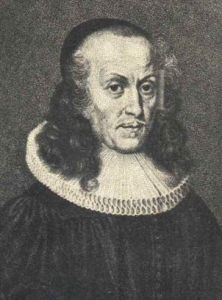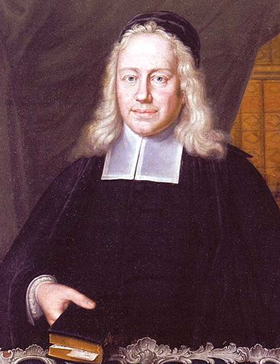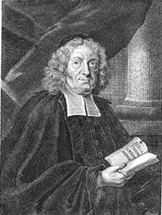Pietists as Pentecostal Forerunners
Excerpts from the paper “The Petersens and the Silesian Kinderbeten Revival” by Eric Jonas Swensson.
Lutheranism is a tradition born out of a dispute within the Roman Catholic Church. The blooming of German Lutheran Pietism, 1675-1725, a period commencing with Phillip Jakob Spener’s Pia Desideria and ending with the death of his protégé August Hermann Francke, was a movement with less bloodshed than the Reformation, but nevertheless one of great upheaval. … Martin Brecht, one of the deans of German Pietist history, … said that he thought the future direction of Pietist studies would be how the Pietists were forerunners of the Pentecostal movement.
I found this really interesting, delightful in fact, because it is something I always suspected; however, this is significant because it was made by the main editor of Pietist studies. That Pietists were Pentecostal is not a recent discovery, it is actually basis of the charges against the Charismatic movement made nearly thirty years ago, one made in a book by a Lutheran historian, Dr Carter Lindberg, who said that the Spiritualists of the time of Luther, the Spener-Francke Pietists and the participants in the Lutheran Charismatic Revival were all cut from the same cloth.1 Lindberg’s book is interesting, but it is problematic. In my opinion he is correct in making the connections; however, it is obvious that it is an attempt to discredit both Pietism and Pentecostalism. Clearly there is much more work to be done on the subject, but it is work which may have to wait as there is very little interest in the subject by scholars of Lutheranism and little interest in anything involving Lutheranism outside of Lutherans. …
The Petersens
German historian and Pietist scholar Emmanuel Hirsch called Johann Wilhelm Petersen (1649-1727) and Johanna Eleonora Petersen (1644-1724) “two of the most fascinating representatives of Pietist fanatics.”5 Johann studied theology, philosophy, and poetry at leading German universities Gießen, Rostock, Wittenberg, Leipzig and Jena. He was pastor at Hannover in 1677, was quickly made Superintendent and Hofprediger (court preacher) in Eutin (1678), in 1686 he returned to Rostock for the Doctor of Theology degree, in 1688 he returned to being a Superintendent until 1692 when he was in trouble again for his teachings. Besides being a “fanatic,” which of course, is all in the eyes of the beholder, Petersen was a respected man of letters who was a professor of poetry, which at that time meant teaching composition of poetry in Latin. Petersen was respected by intellectuals such as Leibniz, who suggested he write a long poem on the history of the world up to its consummation. The year 1692 proved to be the only time he was “fired” for his beliefs, and he spent the next thirty five years free to study, pray and write under the patronage of pious nobles. Peterson forms an important link between Spener and Radical Pietists for historians.6 Radicals were those who left the Church so they had some freedom to engage in speculative theology, and while they must be viewed individually, all were motivated by millennialism. Hans Schneider wrote, “In dealing with radical Pietism, it is impossible to miss the fact that the great significance eschatology was afforded in Pietism only increased in Pietism’s radical representatives. For some figures and groups, it almost became the focal point of their theology and piety.”7
Category: Church History, Pneuma Review, Summer 2012





